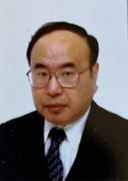Keynote Speaker

Nao-Aki Noda
Professor Emeritus, Kyushu Institute of Technology, JapanSpecially Appointed Professor, China University of Petroleum Beijing, China
Speech Title: Variation of Shear Average Strength Depending on Specimen Geometry in Pull-Out/Micro-Bond Tests and Lap Shear Tensile Test
Abstract: In fiber reinforced composites, the fiber/matrix combination produces certain mechanical properties that cannot be achieved by either of the constituents acting alone. Many different alternative test set-ups and experimental techniques have been developed in recent years to gain more insight into the basic mechanisms, dominating the properties of the fiber/matrix interface. Pull-out/micro-bond tests are commonly used to investigate the interface properties by using the ultimate average shear stress without considering the singular stress fields (ISSFs). By using these methods, the macroscopic properties of the composite are being improved by increasing the fiber/matrix debonding strength. The ultimate average shear stress is also used in lap shear tensile test specified in JIS to describe adhesive shear strength. In those pull-out/micro-bond tests and lap shear tests, an interface crack initiates at interface end and propagates causing final failure. Therefore, the intensity of the singular stress field (ISSF) at the interface end controls the strength as can be expressed by ISSF=const. Instead, the ultimate average shear stress varies depending on the specimen geometry. In this study, by using ISSF=const, variations of the ultimate average shear stress are discussed for pull-out/micro-bond tests as well as lap shear tests. It is found that the ultimate average shear stress decreases with increasing the bond length lb. It is also found that the ultimate average shear stress decreases significantly with decreasing the knife edge opening less than lg ≤ 10μm.
Keywords: Fiber reinforced composites, Micro-bond test, Fiber Pull-out, Lap joint, Intensity of singular stress field(ISSF), Interface
Biography: Nao-Aki Noda received his Ph.D. degree in Mechanical Engineering from Kyushu University, Japan in 1984. He has been doing research and teaching at Kyushu Inst. Tech., Kitakyushu, Japan, 1984-2022. He is an author of Theory of Elasticity useful for engineers and a co-author of Safety Engineering for Workers in Industry and other several books. He is a co-editor of Stress Intensity Factors Handbook, vol. 4 & 5, Advances in Finite Element Analysis for Computational Mechanics. He is a recipient of Outstanding Paper Medal of Japan Soc. Tech. Plasticity, Sokeizai Industry Technology award from the Materials Process Tech. Ctr., a fellow of JSME (Japan Soc. Mech. Engrs.) and a fellow of JSAE (Soc. Automotive Engrs. Japan), JSMS Award for Academic Contribution and JSME Materials and Mechanics Division Award. Nao-Aki Noda supervised more than 28 PhD students including 18 international students, most of whom are supported by MEXT. He also supervised more than 30 international master students most of whom are working in Japanese companies. He invited more than 25 international researchers to Kyushu Tech for collaboration. For contributing to the development of excellent international students and foreign researchers, he received the Commendation of Consulate-General of China in Fukuoka. His achievements include research in stress analysis for notched material testing specimens, and development for large ceramics structures used for steel manufacturing machinery and special bolt-nut connection improving anti-loosening and fatigue strength. In 2025, he received the Society of Automotive Engineers of Japan's Best Paper Award and the International Society for Advanced Materials' Advanced Materials Scientist Medal.
